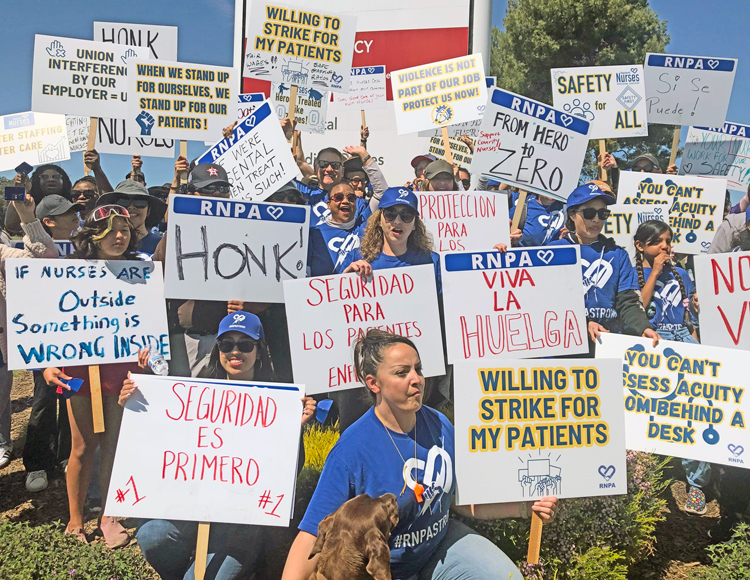GILROY, Calif. — Nurses carried out a spirited four-day strike at Santa Clara County hospitals April 2-5, with loud picket lines outside two hospitals in San Jose and one here.
When supporters of the Socialist Workers Party campaign of Rachele Fruit for president joined the picket line in Gilroy — known as the U.S. garlic capital — pickets were waving signs along the country road outside the hospital as cars and trucks honked in support.
At one point a group of hospital workers who aren’t on strike, including housekeepers, nurses’ assistants and others who are members of Service Employees International Union Local 521, were loudly cheered when they walked out of the hospital and joined the picket line.
The nurses, members of the Registered Nurses Professional Association, voted 97% in favor of the union’s first-ever strike. The county had proposed to deal with understaffing by sending nurses to work temporarily in different departments, and even to a different hospital in another city, whether assigned in their specialty or not, and with no notice. Already, some nurses are forced to work temporarily in departments they aren’t trained for.
“We’re out here for our patients,” said Annie Chavez, a nurse at the hospital since 2008. “Having these ‘floating’ nurses hurts the care we can give.”
Tiffany Talerico, a nurse at one of the county hospitals in San Jose who was picketing here, said, “There is a maneuver going on.” County administrators tell the media the conflict is over wages, exaggerate what the average nurse makes and point to the $250 million county budget shortfall. At the same time, they downplay the main issue, understaffing.
Going door to door in San Jose and Gilroy two days after the strike, SWP campaigners urged support for the nurses’ fight. We visited the three hospitals and got out issues of the Militant that included articles on their fight. Cafeteria worker Betty Zaragoza and many of the nurses told us of the satisfaction working in a hospital system where a million patients are treated annually whether they have insurance or not. “We’re answering a real need,” she said. “They are overworking all of us.”


